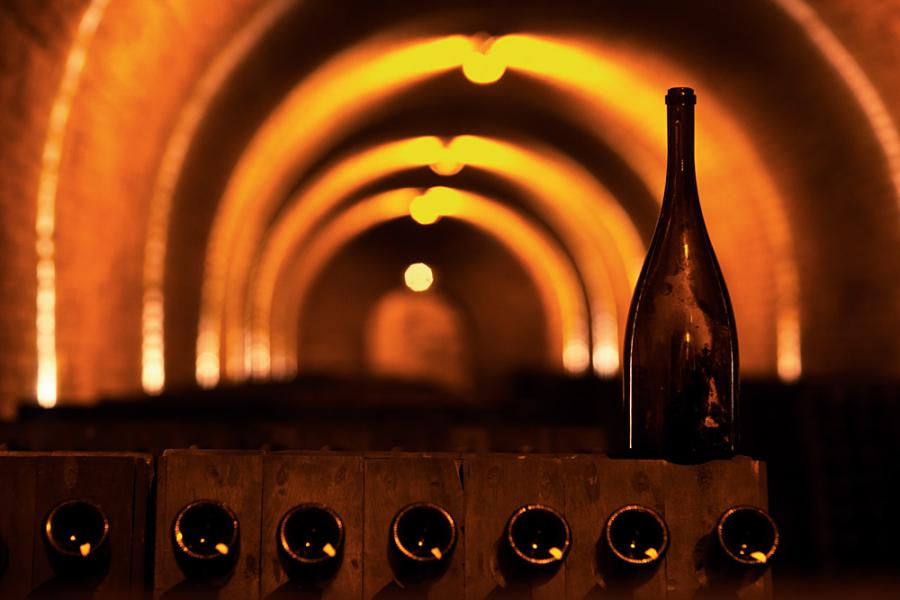Wine Fraud

The counterfeiting of wine has been around almost as long as wine itself and has taken place in many forms. Back in Roman times, the noted author and natural philosopher Pliny the Elder famously complained that there was such a great abundance of fraudulent Roman wine that even the nobility could not be assured that the wine on their table was genuine. This was compounded by the fact that there was a suspiciously relentless supply of prestigious Falernian wine finding its was to the local wine houses which serviced the poor and middle classes of Rome.
Fast forward to the Middle Ages and the problem with sub-standard wines being passed off as those from more prestigious regions led to local authorities establishing laws which prevented wines from France, Germany and Spain from being cellared together. This was done in order to prevent the mixing of wines before serving them to the customer and many an unscrupulous tavern owner was reportedly forced to drink their entire supply as punishment for purveying “corrupt wine”. The punishment in medieval Germany was more severe and ranged from branding to death.
In modern times by far the highest profile case of wine fraud is the case of Rudy Kurniawan. Rudy came to prominence in 2006 when supposedly on the back of a vast family fortune he swept the LA wine scene with seemingly unlimited funds and a wine cellar to match. Having wined, dined and befriended many of the Hollywood elite he began selling off large swaths of his vast collection, making as much as $24.7m in a single auction. Such was his affection for top end burgundy that he earned the moniker “Dr Conti” after the Domaine de la Romanee-Conti wines of which he was so fond. Rudy went on defrauding the great and the good of Hollywood for the next 6 years until the cellar master of Clos St. Denis noticed that wines at auction from a certain plot came from a vintage that pre-dated production on that site. Rudy is currently serving 10 years in prison for his troubles.
The counterfeiting of alcoholic beverages is not only illegal, it is also highly dangerous. One of the most common sectors to suffer from counterfeiting is branded spirits and there are numerous instances of people trying to pass spirits that they have distilled themselves off as brands such as Smirnoff and Bacardi. This is dangerous because during the distillation process dangerous forms of alcohol which are unsuitable for human consumption must be separated from the rest of the spirit. Of the 4 forms of alcohol present in the almost pure alcohol that is used as a base for the drinks you find on shop shelves only 1, ethanol, is fit consumption. The others Methanol, butanol, and propanol most certainly are not and it was the failure to separate these compounds which was responsible for causing people to go blind in the original gin craze of the 1700’s.
So what is being done to combat this problem? In the UK We have recently seen the introduction of the Alcohol Wholesale Registration Scheme [AWRS]. This requires every brewery, distillery, importer, retailer, bar or restaurant be accredited by law. The scheme is enforced by HMRC and failure to register is punishable by both criminal and civil sanctions.
Whilst the AWRS has been helpful in the fight against counterfeit wines and spirits, it has not wholly solved the problem. Conservative estimates put the level of counterfeit alcohol on the UK market at around 5% and it is important that people are able to guard themselves from these illicit products.
The first precaution consumers can take is to only shop at reputable merchants and not be afraid to ask for AWRS information. The second is to check that at UK duty stamp is present on any bottles before purchasing them. If you still suspect that a bottle may be counterfeit it is worth checking the label for spelling mistakes or other giveaway errors. These are surprisingly common as counterfeit drinks invariably come with counterfeit labels. Finally if you are still in any doubt about the authenticity of your drink don’t consume it, especially if it is a spirit as the potential health implications can be extremely serious.
